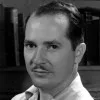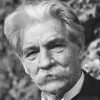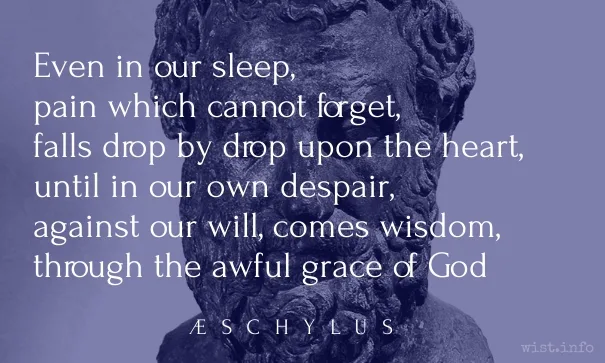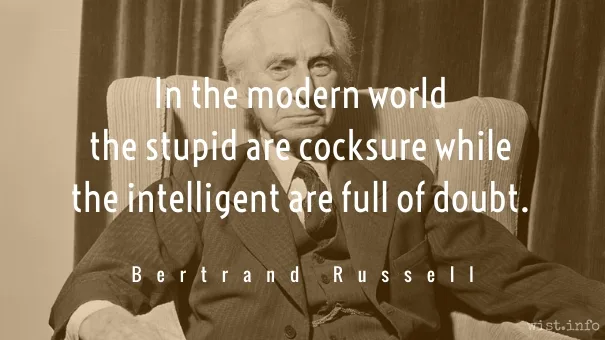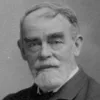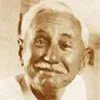Do not let the wise boast in their wisdom; do not let the mighty boast in their might; do not let the wealthy boast in their wealth; but let those who boast boast in this, that they understand and know me, that I am the Lord; I act with steadfast love, justice, and righteousness in the earth, for in these things I delight, says the Lord.
The Bible (The Old Testament) (14th - 2nd C BC) Judeo-Christian sacred scripture [Tanakh, Hebrew Bible], incl. the Apocrypha (Deuterocanonicals)
Jeremiah 9:23-24 [NRSV (1989 ed.)]
(Source)
Alternate translations:Let not the wise man glory in his wisdom, neither let the mighty man glory in his might, let not the rich man glory in his riches: But let him that glorieth glory in this, that he understandeth and knoweth me, that I am the Lord which exercise lovingkindness, judgment, and righteousness, in the earth: for in these things I delight, saith the Lord.
[KJV (1611)]Let the sage boast no more of his wisdom, nor the valiant of his valour, nor the rich man of his riches! But if anyone wants to boast, let him boast of this: of understanding and knowing me. For I am Yahweh, I rule with kindness, justice and integrity on earth; yes, these are what please me -- it is Yahweh who speaks.
[JB (1966), 9:22-23]The wise should not boast of their wisdom,
nor the strong of their strength,
nor the rich of their wealth.
If any want to boast,
they should boast that they know and understand me,
because my love is constant,
and I do what is just and right.
These are the things that please me.
I, the Lord, have spoken.
[GNT (1976)]"Let the sage not boast of wisdom, nor the valiant of valour, nor the wealthy of riches! But let anyone who wants to boast, boast of this: of understanding and knowing me. For I am Yahweh, who acts with faithful love, justice, and uprightness on earth; yes, these are what please me," Yahweh declares.
[NJB (1985), 9:22-23]Let not the wise glory in their wisdom;
Let not the strong glory in their strength;
Let not the rich glory in their riches.
But only in this should one glory:
In being earnestly devoted to Me.
For I GOD act with kindness,
Justice, and equity in the world;
For in these I delight
-- declares GOD.
[RJPS (2023 ed.), 9:22-23]
Quotations about:
wisdom
Note not all quotations have been tagged, so Search may find additional quotes on this topic.
Kindness consists in part, perhaps, in esteeming and loving people more than they deserve; but then there is a measure of prudence in believing that people are not always equal to what they are taken for.
[Une partie de la bonté consiste peut-être à estimer et à aimer les gens plus qu’ils ne le méritent; mais alors une partie de la prudence est de croire que les gens ne valent pas toujours ce qu’on les prise.]Joseph Joubert (1754-1824) French moralist, philosopher, essayist, poet
Pensées [Thoughts], ch. 5 “Des Passions et des Affections de l’Âme [On the Soul],” ¶ 66 (1850 ed.) [tr. Attwell (1896), ¶ 71]
(Source)
(Source (French)). Alternate translation:A part of goodness consists, perhaps, in esteeming and loving people more than they deserve; but then a part of prudence is to believe that people are not always worth what we rate them at.
[tr. Calvert (1866), ch. 5]
Commonly truncated and paraphrased as:A part of kindness consists in loving people more than they deserve.
[E.g. (1935)]
(Sometimes the "A part of" is left off as well.)
The best thing to give to your enemy is forgiveness; to an opponent, tolerance; to a friend, your heart; to your child, a good example; to a father, deference; to your mother, conduct that will make her proud of you; to yourself, respect; to all men, charity.
Clara Lucas Balfour (1808-1878) English novelist, lecturer, temperance campaigner
Sunbeams for All Seasons: Counsels, Cautions, and Precepts (1861 ed.)
He that gives good advice, builds with one hand; he that gives good counsel and example, builds with both; but he that gives good admonition and bad example, builds with one hand and pulls down with the other.
No occurrences are so unfortunate that the shrewd cannot turn them to some advantage, nor so fortunate that the imprudent cannot turn them to their own disadvantage.
[Il n’y a point d’accidents si malheureux dont les habiles gens ne tirent quelque avantage, ni de si heureux que les imprudents ne puissent tourner à leur préjudice.]François VI, duc de La Rochefoucauld (1613-1680) French epigrammatist, memoirist, noble
Réflexions ou sentences et maximes morales [Reflections; or Sentences and Moral Maxims], ¶59 (1665-1678) [tr. Tancock (1959)]
(Source)
Present in the original 1665 edition. In manuscript, this was originally drafted as:One could say that there are no lucky or unfortunate accidents, because clever people know how to take advantage of bad ones, and the imprudent very often turn the most advantageous harm to themselves.
[On pourrait dire qu’il n’y a point d’heurcux ni de malheureux accidents, parce que les habiles gens savent profiter des mauvais, et que les imprudents tournent bien souvent à leur préjudice les plus avantageux.]
(Source (French)). Alternate translations:It may be affirm'd that either there are not any happy or unhappy accidents, or that all accidents are both happy and unhappy, inasmuch as the prudent know how to make their advantages of the bad, and the imprudent many times turn the most advantageous emergencies to their own prejudice.
[tr. Davies (1669), ¶128]There is no accident so exquisitely unfortunate, but wise Men will make some advantage of it; nor any so entirely fortunate, but Fools may turn it to their own prejudice.
[tr. Stanhope (1694), ¶60]No accidents are so unlucky, but that the prudent may draw some advantage from them: nor are there any so lucky, but what the imprudent may turn to their prejudice.
[pub. Donaldson (1783), ¶8; [ed. Lepoittevin-Lacroix (1797), ¶58]No accidents are so unlucky, but what the prudent may draw some advantages from; nor are there any so lucky, but what the imprudent may turn to their prejudice.
[ed. Carville (1835), ¶5]There are no circumstances, however unfortunate, that clever people do not extract some advantage from; and none, however fortune, that the imprudent cannot turn to their own prejudice.
[ed. Gowens (1851), ¶60]There are no accidents so unfortunate from which skillful men will not draw some advantage, nor so fortunate that foolish men will not turn them to their hurt.
[tr. Bund/Friswell (1871)]A clever man reaps some benefit from the worst catastrophe, and a fool can turn even good luck to his disadvantage.
[tr. Heard (1917)]No event is so disastrous that the adroit cannot derive some benefit from it, nor so auspicious that fools cannot turn it to their detriment.
[tr. Stevens (1939)]There is no accident so disastrous that a clever man cannot derive some profit from it: nor any so fortunate that a fool cannot turn it to his disadvantage.
[tr. FitzGibbon (1957)]There are no experiences so disastrous that thoughtful men cannot derive some profit from them, nor so happy that the thoughtless cannot use them to their harm.
[tr. Kronenberger (1959)]There are no accidents so unfortunate that clever men may not draw some advantage from them, nor so fortunate that imprudent men may not turn them to their own detriment.
[tr. Whichello (2016)]
It is a bit embarrassing to have been concerned with the human problem all one’s life and find at the end that one has no more to offer by way of advice than “Try to be a little kinder.”
Aldous Huxley (1894-1963) English novelist, essayist and critic
(Attributed)
Widely quoted but without a good citation. Variant: "It is a little embarrassing that, after 45 years of research and study, the best advice I can give to people is to be a little kinder to each other." This version was quoted by his wife, Laura Huxley, in the biography This Timeless Moment (1968).
SUSAN: Sally, does it ever occur to you that age brings wisdom and greater confidence?
SALLY: Susan, age brings you more to shave.
Steven Moffat (b. 1961) Scottish television writer, producer
Coupling, 01×01 “Flushed” (2000-05-12)
(Source)
To the question whether I am a pessimist or an optimist, I answer that my knowledge is pessimistic, but my willing and hoping are optimistic.
Albert Schweitzer (1875-1965) Alsatian philosopher, physician, philanthropist, polymath
Out of My Life and Thought, An Autobiography, Epilogue (1933) [tr. Campion]
See also Gramsci.
There is more in you of good than you know, child of the kindly West. Some courage and some wisdom, blended in measure. If more of us valued food and cheer and song above hoarded gold, it would be a merrier world.
J.R.R. Tolkien (1892-1973) English writer, fabulist, philologist, academic [John Ronald Reuel Tolkien]
The Hobbit, ch. 18 “The Return Journey” [Thorin] (1937)
(Source)
I honestly beleave it iz better tew know nothing than two know what ain’t so.
[I honestly believe it is better to know nothing than to know what ain’t so.]
Josh Billings (1818-1885) American humorist, aphorist [pseud. of Henry Wheeler Shaw]
Everybody’s Friend, Or; Josh Billing’s Encyclopedia and Proverbial Philosophy of Wit and Humor, “Sollum Thoughts” (1874)
(Source)
This was Billings signature aphorism, and he used variations on multiple occasions. Variants and evolutions have also been misattributed to Will Rogers, Mark Twain, and Artemus Ward, sometimes from their own paraphrases of Billings. Some variations (usually without specific citations) include:In a similar vein, Billings wrote, "Wisdum don't konsist in knowing more that iz new, but in knowing less that iz false. [Wisdom doesn't consist in knowing more that is new, but in knowing less than is false.]" [Source]
- "The trouble with people is not that they don't know but that they know so much that ain't so."
- "It ain't what you don't know that gets you into trouble. It's what you know for sure that just ain't so."
- "You’d better not know so much, than know so many things that ain’t so."
More discussion about this quotation:
- It Ain’t What You Don’t Know That Gets You Into Trouble. It’s What You Know for Sure That Just Ain’t So – Quote Investigator
- Ralph Keyes, The Quote Verifier (2006)
- Ralph Keyes, Nice Guys Finish Seventh (1992)
- James Billington, Respectfully Yours (1993)
- Daniel Levitin, A Field Guide to Lies, Deluxe Ed. (2016)
For such is the nature of men that howsoever they may acknowledge many others to be more witty, or more eloquent or more learned, yet they will hardly believe there be many so wise as themselves; for they see their own wit at hand, and other men’s at a distance.
Finally, stick to the advice your own heart gives you, no one can be truer to you than that; since a man’s soul often forewarns him better than seven watchmen perched on a watchtower.
The Bible (The Old Testament) (14th - 2nd C BC) Judeo-Christian sacred scripture [Tanakh, Hebrew Bible], incl. the Apocrypha (Deuterocanonicals)
Sirach (Ecclesiasticus) 37:13-14 [JB (1966)]
(Source)
Alternate translations:And let the counsel of thine own heart stand: for there is no man more faithful unto thee than it. For a man's mind is sometime wont to tell him more than seven watchmen, that sit above in an high tower.
[KJV (1611)]And establish within thyself a heart of good counsel: for there is no other thing of more worth to thee than it. The soul of a holy man discovereth sometimes true things, more than seven watchmen that sit in a high piece to watch.
[DRA (1899); 37:17-18]And trust your own judgment; no one's advice is more reliable. Sometimes your own intuition can tell you more than seven watchmen on a high tower.
[GNT (1976)]And heed the counsel of your own heart, for no one is more faithful to you than it is. For our own mind sometimes keeps us better informed than seven sentinels sitting high on a watchtower.
[NRSV (1989 ed.)]
I may have the gift of inspired preaching; I may have all knowledge and understand all secrets; I may have all the faith needed to move mountains — but if I have no love, I am nothing.
[καὶ ἐὰν ἔχω προφητείαν καὶ εἰδῶ τὰ μυστήρια πάντα καὶ πᾶσαν τὴν γνῶσιν καὶ ἐὰν ἔχω πᾶσαν τὴν πίστιν ὥστε ὄρη μεθιστάναι ἀγάπην δὲ μὴ ἔχω οὐθέν εἰμι.]
The Bible (The New Testament) (AD 1st - 2nd C) Christian sacred scripture
1 Corinthians 13: 2 [GNT (1976)]
(Source)
(Source (Greek)). Alternate translations:And though I have the gift of prophecy, and understand all mysteries, and all knowledge; and though I have all faith, so that I could remove mountains, and have not charity, I am nothing.
[KJV (1611)]If I have the gift of prophecy, understanding all the mysteries there are, and knowing everything, and if I have faith in all its fulness, to move mountains, but without love, then I am nothing at all.
[JB (1966)]And though I have the power of prophecy, to penetrate all mysteries and knowledge, and though I have all the faith necessary to move mountains -- if I am without love, I am nothing.
[NJB (1985)]If I have the gift of prophecy and I know all the mysteries and everything else, and if I have such complete faith that I can move mountains but I don’t have love, I’m nothing.
[CEB (2011)]And if I have prophetic powers and understand all mysteries and all knowledge and if I have all faith so as to remove mountains but do not have love, I am nothing.
[NRSV (2021 ed.)]
When I was a boy of fourteen, my father was so ignorant I could hardly stand to have the old man around. But when I got to be twenty-one, I was astonished at how much the old man had learned in seven years.
I know no safe depository of the ultimate powers of the society, but the people themselves: and if we think them not enlightened enough to exercise their controul with a wholsome discretion, the remedy is, not to take it from them, but to inform their discretion by education. this is the true corrective of abuses of constitutional power.
Thomas Jefferson (1743-1826) American political philosopher, polymath, statesman, US President (1801-09)
Letter (1820-09-28) to William Charles Jarvis
(Source)
But, perhaps, the excellence of aphorisms consists not so much in the expression of some rare and abstruse sentiment, as in the comprehension of some obvious and useful truths in a few words. We frequently fall into error and folly, not because the true principles of actions are not not known, but because, for a time, they are not remembered; and he may, therefore, be justly numbered among the benefactors of mankind, who contracts the great rules of life into short sentences, that may be easily impressed on the memory, and taught by frequent recollection to recur habitually to the mind.
Samuel Johnson (1709-1784) English writer, lexicographer, critic
The Rambler, #175 (19 Nov 1751)
(Source)
Although my mother didn’t know anything about science, she had a great influence on me as well. In particular, she had a wonderful sense of humor, and I learned from her that the highest forms of understanding we can achieve are laughter and human compassion.
Richard Feynman (1918-1988) American physicist
What Do You Care What Other People Think?, “The Making of a Scientist” (1988)
(Source)
I have lived in the pursuit of a vision, both personal and social. Personal: to care for what is noble, for what is beautiful, for what is gentle; to allow moments of insight to give wisdom at more mundane times. Social: to see in imagination the society that is to be created, where individuals grow freely, and where hate and greed and envy die because there is nothing to nourish them. These things I believe, and the world, for all its horrors, has left me unshaken.
Bertrand Russell (1872-1970) English mathematician and philosopher
Autobiography, Vol. 3: 1944-1969, “Postscript” (1969)
(Source)
Final words of the book.
Zeus, who guided mortals to be wise,
has established his fixed law —
wisdom comes through suffering.
Trouble, with its memories of pain,
drips in our hearts as we try to sleep,
so men against their will
learn to practice moderation.
Favours come to us from gods
seated on their solemn thrones —
such grace is harsh and violent.τὸν φρονεῖν βροτοὺς ὁδώ-
σαντα, τὸν [πάθει μάθος]
θέντα κυρίως ἔχειν.
στάζει δ’ ἀνθ’ ὕπνου πρὸ καρδίας
μνησιπήμων πόνος· καὶ παρ’ ἄ-
κοντας ἦλθε σωφρονεῖν.
δαιμόνων δέ που χάρις βίαιος
σέλμα σεμνὸν ἡμένων.Aeschylus (525-456 BC) Greek dramatist (Æschylus)
Agamemnon, ll. 175-183 [tr. Johnston (2007)]
(Source)
Alt. trans.:The first Hamilton alternate was used, slightly modified, by Robert Kennedy in his speech on the assassination of Martin Luther King, Jr. (4 Apr 1968). Kennedy's family used it as an epitaph on his grave Arlington National Cemetery: "Even in our sleep, pain which cannot forget, falls drop by drop upon the heart, until in our own despair, against our will, comes wisdom, through the awful grace of God."
- "It is through suffering that learning comes." [In Arnold Toynbee, "Christianity and Civilization" (1947), Civilization on Trial (1948)]
- "God, whose law it is that he who learns must suffer. And even in our sleep pain that cannot forget, falls drop by drop upon the heart, and in our own despite, against our will, comes wisdom to us by the awful grace of God." [tr. Hamilton (1930)]
- "Guide of mortal man to wisdom, he who has ordained a law, knowledge won through suffering. Drop, drop -- in our sleep, upon the heart sorrow falls, memory’s pain, and to us, though against our very will, even in our own despite, comes wisdom by the awful grace of God." [tr. Hamilton (1937)]
See here for more discussion.
The first of the four cardinal virtues of the Roman Catholic Church is “prudentia,” which basically means damn good thinking. Christ came to take away our sins, not our minds.
William Sloane Coffin, Jr. (1924-2006) American minister, social activist
Credo, “Faith, Hope, Love” (2004)
(Source)
Books won’t stay banned. They won’t burn. Ideas won’t go to jail. In the long run of history, the censor and the inquisitor have always lost. The only sure weapon against bad ideas is better ideas.
Whitney Griswold (1906–1963) American historian, educator [Alfred Whitney Griswold]
“A Little Learning,” speech, Phillips Academy, Andover (1952, Spring)
(Source)
Already I had learned from thee that because a thing is eloquently expressed it should not be taken to be as necessarily true; nor because it is uttered with stammering lips should it be supposed false. Nor, again, is it necessarily true because rudely uttered, nor untrue because the language is brilliant. Wisdom and folly both are like meats that are wholesome and unwholesome, and courtly or simple words are like town-made or rustic vessels — both kinds of food may be served in either kind of dish.
[Iam ergo abs te didiceram nec eo debere videri aliquid verum dici, quia eloquenter dicitur, nec eo falsum, quia incomposite sonant signa labiorum; rursus nec ideo verum, quia impolite enuntiatur, nec ideo falsum, quia splendidus sermo est, sed perinde esse sapientiam et stultitiam sicut sunt cibi utiles et inutiles, verbis autem ornatis et inornatis sicut vasis urbanis et rusticanis utrosque cibos posse ministrari.]
Augustine of Hippo (354-430) Christian church father, philosopher, saint [b. Aurelius Augustinus]
Confessions, Book 5, ch. 6 / ¶ 10 (5.6.10) (c. AD 398) [tr. Outler (1955)]
(Source)
(Source (Latin)). Alternate translations:Of Thyself therefore had I now learned, that neither ought any thing to seem to be spoken truly, because eloquently; nor therefore falsely, because the utterance of the lips is inharmonious; nor, again, therefore true, because rudely delivered; nor therefore false, because the language is rich; but that wisdom and folly are as wholesome and unwholesome food; and adorned or unadorned phrases as courtly or country vessels; either kind of meats may be served up in either kind of dishes.
[tr. Pusey (1838)]Of Thyself, therefore, had I now learned that neither ought anything to seem to be spoken truly, because eloquently; nor therefore falsely, because the utterance of the lips is inharmonious; nor, again, therefore true, because rudely delivered; nor therefore false, because the language is rich; but that wisdom and folly are as wholesome and unwholesome food; and adorned or unadorned phrases, as courtly or country vessels: either kind of meats may be served up in either kind of dishes.
[ed. Shedd (1860)]From Thee, therefore, I had now learned, that because a thing is eloquently expressed, it should not of necessity seem to be true; nor, because uttered with stammering lips, should it be false nor, again, perforce true, because unskillfully delivered; nor consequently untrue, because the language is fine; but that wisdom and folly are as food both wholesome and unwholesome, and courtly or simple words as town-made or rustic vessels, -- and both kinds of food may be served in either kind of dish.
[tr. Pilkington (1876)]I had learned, then, from Thee, that neither ought a thing to be regarded as true because it is eloquently uttered, nor on the other hand false because awkwardly expressed; neither is it true because the diction is ungraceful, nor false because clothed in glowing language; but that truth and folly are like wholesome and hurtful food, and language ornate and bald like fine and plain dishes, and either kind of meat may be served in either kind of dish.
[tr. Hutchings (1890)]Already I had learned from Thee, that nothing ought to seem true because it is well expressed, nor false because the word-symbols are inelegant; yet again, that nothing is true because rudely delivered, nor false because the diction is brilliant; but that wisdom and folly are like meats that are wholesome or unwholesome, and that either kind of meat can be served up in silver or in delf, that is to say, in courtly or in homely phrase.
[tr. Bigg (1897), 5.6.2]From You then I learned that a thing was not bound to be true because uttered eloquently, nor false because the utterance of the lips is ill-arranged; but that on the other hand a thing is not necessarily true because badly uttered, nor false because spoken magnificently. For it is with wisdom and folly as with wholesome and unwholesome food: just as either kind of food can be served equally well in rich dishes or simple, so plain or beautiful language may clothe either wisdom or folly indifferently.
[tr. Sheed (1943)]Already, therefore, I had learned from you that nothing should be held true merely be-cause it is eloquently expressed, nor false because its signs sound harsh upon the lips. Again, I learned that a thing is not true because rudely uttered, nor is it false because its utterance is splendid. I learned that wisdom is like wholesome food and folly like unwholesome food: they can be set forth in language ornate or plain, just as both kinds of food can be served on rich dishes or on peasant ware.
[tr. Ryan (1960)]But in your wonderful, secret way, my God, you had already taught me that a statement is not necessarily true because it is wrapped in fine language or false because it is awkwardly expressed. I believe that it was you who taught me this, because it is the truth and there is no other teacher of the truth besides yourself, no matter how or where it comes to light. You had already taught me this lesson and the converse truth, that an assertion is not necessarily true because it is badly expressed or false because it is finely spoken. I had learnt that wisdom and folly are like different kinds of food. Some are wholesome and others are not, but both can be served equally well on the finest china dish or the meanest earthenware. In just the same way, - wisdom and folly can be clothed alike in plain words or the finest flowers of speech.
[tr. Pine-Coffin (1961)]I had now learned this from you: that a thing is not necessarily true for being expressed eloquently, nor necessarily false if the sounds made by the lips are imperfectly pronounced; nor, on the other hand, is a thing true simply because it is expressed in a rough and ready way, nor false because it is uttered in a fine style. For with wisdom and folly the same thing holds good as with wholesome and unwholesome food. You can have silver or earthenware dishes on the table, just as you can have a decorated or undecorated use of language; either kind of food can be served in either kind of dish.
[tr. Warner (1963)]I believe that because you taught me and I had already learned from you that nothing should be deemed truly spoken because it is eloquently spoken, nor false because the indications of the lips are ill-arranged. Conversely, uncouth expression does not make something true, nor polished delivery make truth false. As with wholesome and unwholesome food, so it is with wisdom and folly, and as with adorned and unadorned language, so good food and bad can be served up in elegant or rustic dishes.
[tr. Blaiklock (1983)]
Democracy substitutes election by the incompetent many for appointment by the corrupt few.
George Bernard Shaw (1856-1950) British playwright and critic
Man and Superman, “Maxims for Revolutionists,” “Democracy” (1903)
(Source)
It takes a clever man to hide his cleverness.
[C’est une grande habileté que de savoir cacher son habileté.]
François VI, duc de La Rochefoucauld (1613-1680) French epigrammatist, memoirist, noble
Réflexions ou sentences et maximes morales [Reflections; or Sentences and Moral Maxims], ¶245 (1678) [tr. Heard (1917), ¶253]
(Source)
In the 1665 edition, this read: Le plus grand art d’un habile homme est celui de savoir cacher son habileté.
(Source (French)). Alternate translations:It is a Great Act of Wisdom to be able to Conceal one's being Wise.
[tr. Stanhope (1694), ¶246]It requires no small degree of ability to know when to conceal it.
[pub. Donaldson (1783), "Ability," ¶4]It is a great ability to be able to conceal one's ability.
[ed. Gowens (1851), ¶257]There is great ability in knowing how to conceal one's ability.
[tr. Bund/Friswell (1871), ¶245]It is the height of art to conceal art.
[tr. Stevens (1939), ¶245]A very clever man will know how to hide his cleverness.
[tr. FitzGibbon (1957), ¶245]It is exceedingly clever to know how to hide your cleverness.
[tr. Kronenberger (1959), ¶245]To conceal ingenuity is ingenuity indeed.
[tr. Tancock (1959), ¶245]It is great cleverness to know how to hide our cleverness.
[tr. Whichello (2016), ¶245]
Don’t dismiss a good idea simply because you don’t like the source.
H. Jackson "Jack" Brown, Jr. (b. 1940) American writer
Life’s Little Instruction Book, Vol. 2, #691 (1994)
(Source)
HAL: Wisdom cries out in the streets, and no man regards it.
William Shakespeare (1564-1616) English dramatist and poet
Henry IV, Part 1, Act 1, sc. 2, l. 94ff (1.2.94) (1597)
(Source)
I would give the broad sweep of the First Amendment full support. I have the same confidence in the ability of our people to reject noxious literature as I have in their capacity to sort out the true from the false in theology, economics, or any other field.
William O. Douglas (1898-1980) US Supreme Court justice (1939-75)
Roth v. United States, 354 U.S. 476, 514, dissenting opinion (1957)
(Source)
TOUCHSTONE: I do now remember a saying, “The fool doth think he is wise, but the wise man knows himself to be a fool.”
William Shakespeare (1564-1616) English dramatist and poet
As You Like It, Act 5, sc. 1, l. 30ff (5.1.30-32) (1599)
(Source)
He who knows the Truth is not equal to him who loves it, and he who loves it is not equal to him who delights in it.
[知之者、不如好之者、好之者、不如樂之者]
Confucius (c. 551- c. 479 BC) Chinese philosopher, sage, politician [孔夫子 (Kǒng Fūzǐ, K'ung Fu-tzu, K'ung Fu Tse), 孔子 (Kǒngzǐ, Chungni), 孔丘 (Kǒng Qiū, K'ung Ch'iu)]
The Analects [論語, 论语, Lúnyǔ], Book 6, verse 20 (6.20) (6th C. BC – 3rd C. AD) [tr. Soothill (1910), 6.18]
(Source)
Earlier translations use Legge's verse numbering, 6.18. The source material uses 之 (zhi, "it") without a clear antecedent. Soothill suggests it may refer to Truth, Virtue, or the Right. Some translations provide what they think is the reference; others leave it ambiguous or footnote it, as shown below.
(Source (Chinese)). Alternate translations:They who know the truth are not equal to those who love it, and they who love it are not equal to those who delight in it.
[tr. Legge (1861), 6.18]They who know it are not as those who love it, nor they who love it as those who rejoice in it.
[tr. Jennings (1895), 6.18]Those who know it are not as those who love it; those who love it are not as those who find their joy in it.
[tr. Ku Hung-Ming (1898), 6.18]Those who know aren't up to those who love; nor those who love, to those who delight in.
[tr. Pound (1933), 6.18]To prefer it is better than only to know it. To delight in it is better than merely to prefer it.
[tr. Waley (1938), 6.18; "the Way"]The man who loves truth (or learning) is better than the man who knows it, and the man who finds happiness in it is better than the man who loves it.
[tr. Lin Yutang (1938)]Being fond of The Right Way is better than just knowing it; and taking one’s delight in it is better than just being fond of it.
[tr. Ware (1950)]To be fond of something is better than merely to know it, and to find joy in it is better than merely to be fond of it.
[tr. Lau (1979), 6.20]Those who understand a thing are not equal to those who are fond of it, and those who are fond of it are not equal to those who delight in it.
[tr. Dawson (1993), 6.20]To know something is not as good as loving it; to love something is not as good as rejoicing in it.
[tr. Leys (1997), 6.20]Those who know it are not comparable to those who love it; those who love it are not comparable to thsoe who delight in it.
[tr. Huang (1997)]The persons who know something are not better than the persons who favor something; The persons who favor something are not better than the persons who enjoy something.
[tr. Cai/Yu (1998), 6.20, #140]To truly love it is better than just to understand it, and to enjoy it is better than simply to love it.
[tr. Ames/Rosemont (1998), 6.20; "knowledge and learning"]Knowing it is not as good as loving it; loving it is not as good as taking delight in it.
[tr. Brooks/Brooks (1998), 6.20; virtue]To understand something is nothing like loving it. And to love something is nothing like delighting in it.
[tr. Hinton (1998), 6.19]To know it is not as good as to approve it. To approve it is not as good as to find joy in it.
[tr. Watson (2007), 6.20]To know something is not as good as to have a love for it. To have a love for something is not as good as to find joy in it.
[tr. Annping Chin (2014), 6.20; learning, cf. 6.11 and 7.19]Learned people are inferior to those who are eager to learn. Those who are eager to learn are inferior to those who enjoy learning.
[tr. Li (2020), 6.20]Better than the one who knows what is right is he who loves what is right.
[Common English translation]
The possession of facts is knowledge; the use of them is wisdom; the choice of them, education. Knowledge is not power but riches, and like them, has its value in spending.
Whom the gods would destroy they first make mad with power;
The mills of God grind slowly, but they grind exceedingly small;
The bee fertilizes the flower it robs;
When it is dark enough, you can see the stars.Charles Beard (1874-1948) American historian
Summary of human history, in reply to George S. Counts
Whether the succeeding generation is to be more virtuous than their predecessors, I cannot say; but I am sure they will have more worldly wisdom, and enough, I hope, to know that honesty is the 1st chapter in the book of wisdom.
Thomas Jefferson (1743-1826) American political philosopher, polymath, statesman, US President (1801-09)
Letter (1819-01-12) to Nathaniel Macon
(Source)
Usually just the last phrase is given, and transcribed as "Honesty is the first chapter in the book of wisdom."
More information about this quotation:
To be glad of life because it gives you to chance to love and to work and to play and to look up at the stars — to be satisfied with your possessions but not content with yourself until you have made the best of them — to despise nothing in the world except falsehood and meanness, and to fear nothing except cowardice — to be governed by you admirations rather than by your disgusts — to covet nothing that is your neighbors except his kindness of heart and gentleness of manners — to think seldom of your enemies, often of your friends, and every day of Christ; to spend as much time as you can in God’s out-of doors — these are the little guideposts on the foot-path to peace.
Henry Van Dyke (1852-1933) American clergyman and writer
“The Foot-path to Peace,” Tacoma Times (1 Jan 1904)
(Source)
Often shortened to: "Be glad for life because it gives you the chance to love and to work and to look up at the stars."
Brute force plays a much larger part in the government of the world than it did before 1914, and what is especially alarming, force tends increasingly to fall into the hands of those who are enemies of civilization. The danger is profound and terrible; it cannot be waved aside with easy optimism. The fundamental cause of the trouble is that in the modern world the stupid are cocksure while the intelligent are full of doubt.
Bertrand Russell (1872-1970) English mathematician and philosopher
“The Triumph of Stupidity,” New York American (1933-05-10)
(Source)
Often paraphrased, "The trouble with the world is that the stupid are cocksure, and the intelligent are full of doubt." See also Yeats and Bukowski.
More examination of this quotation: The Best Lack All Conviction While the Worst Are Full of Passionate Intensity – Quote Investigator.
EDUCATION, n. That which discloses to the wise and disguises from the foolish their lack of understanding.
Ambrose Bierce (1842-1914?) American writer and journalist
“Education,” The Cynic’s Word Book (1906)
(Source)
Included in The Devil's Dictionary (1911). Originally published in the "Devil's Dictionary" column in the San Francisco Wasp (1882-12-23).
For it is the part of a wise man to resolve beforehand that whatever can happen to a brave man is to be endured with patience if it should happen. It is indeed a proof of altogether greater wisdom to act with such foresight as to prevent any such thing from happening; but it is a token of no less courage to bear it bravely if it should befall one.
[Est enim sapientis, quidquid homini accidere possit, id praemeditari ferendum modice esse, si evenerit. Majoris omnino est consilii providere ne quid tale accidat, animi non minoris fortiter ferre si evenerit.]
Marcus Tullius Cicero (106-43 BC) Roman orator, statesman, philosopher
Philippics, No. 11, ch. 3 / sec. 7 (11.7) (late Feb AD 43) [tr. Yonge (1903)]
(Source)
(Source (Latin)). Alternate translations:For it is the part of a wise man to resolve beforehand that whatever can happen to a man should be borne calmly if it should befall him. It needs altogether great judgment to provide against such evil happening and no less courage to bear it with fortitude if it should befall.
[tr. Ker (1926)]It is the mark of a wise man ever to consider, reflect, that whatever may happen to him should be borne with patience. It is, however, a mark of greater wisdom to take every precaution against the occurrence of any thing unpleasant, of a reverse of fortune; but it is an indication of a mind in no wise inferior bravely and manfully to submit to any change of fortune, however unpleasant, untoward, unfavorable, unpropitious.
[Source]
This appears to the the source of the paraphrase: "To yield to occasion is the mark of a wise man."
ALBANY: Wisdom and goodness to the vile seem vile.
Filths savor but themselves.William Shakespeare (1564-1616) English dramatist and poet
King Lear, Act 4, sc. 2, l. 47ff (4.2.47-48) (1606)
(Source)
Good sense is of all things in the world the most equally distributed, for everybody thinks he is so well supplied with it, that even those most difficult to please in all other matters never desire more of it than they already possess.
[Le bon sens est la chose du monde la mieux partagée; car chacun pense en être si bien pourvu, que ceux même qui sont les plus difficiles à contenter en toute autre chose n’ont point coutume d’en désirer plus qu’ils en ont.]
René Descartes (1596-1650) French philosopher, mathematician
Discourse on Method [Discours de la méthode], Part 1, Opening Words (1637) [tr. Haldane & Ross (1911)]
(Source)
(Source (French)). Alternate translations:Right understanding is the most equally divided thing in the World; for every one beleevs himself so well stor’d with it, that even those who in all other things are the hardest to be pleas’d, seldom desire more of it then they have.
[Newcombe ed. (1649)]Good sense is, of all things among men, the most equally distributed; for every one thinks himself so abundantly provided with it, that those even who are the most difficult to satisfy in everything else, do not usually desire a larger measure of this quality than they already possess.
[tr. Veitch (1850)]Good sense is the most fairly distributed thing in the world; for everyone thinks himself so well supplied with it, that even those who are hardest ot satisfy in every other way do not usually desire more of it than they already have.
[tr. Ascombe & Geach (1971)]Good sense is the best distributed thing in the world: for everyone thinks himself so well endowed with it that even those who are hardest to please in everything else do not usually desire more of it than they possess.
[tr. Cottingham, Stoothoff (1985), sec. 1]Common sense is the best distributed commodity in the world, for every man is convinced that he is well supplied with it.
[Oxford Reference]Of all things, good sense is the most fairly distributed: everyone thinks he is so well supplied with it that even those who are the hardest to satisfy in every other respect never desire more of it than they already have.Nothing is more fairly distributed than common sense: no one thinks he needs more of it than he already has.
God, give us the grace to accept with serenity the things which cannot be changed, courage to change the things which should be changed, and the wisdom to distinguish the one from the other.
Reinhold Niebuhr (1892-1971) American theologian and clergyman
“The Serenity Prayer” (1934)
Niebuhr at one point claimed authorship (and took copyright fees from Hallmark Cards), but later on denied he had written it. It was later adopted by Alcoholics Anonymous. Discussion of the actual authorship here.
Life is like music, it must be composed by ear, feeling and instinct, not by rule. Nevertheless one had better know the rules, for they sometimes guide in doubtful cases, though not often.
Samuel Butler (1835-1902) English novelist, satirist, scholar
The Note-Books of Samuel Butler, ch. 1, “Life” (1912)
(Source)
The beginning of wisdom is the most sincere desire for instruction,
and concern for instruction is love of her,
and love of her is the keeping of her laws,
and giving heed to her laws is assurance of immortality,
and immortality brings one near to God,
so the desire for wisdom leads to a kingdom.The Bible (The Old Testament) (14th - 2nd C BC) Judeo-Christian sacred scripture [Tanakh, Hebrew Bible], incl. the Apocrypha (Deuterocanonicals)
Wisdom of Solomon 6:17-20 [NRSV (2021 ed.)]
(Source)
Alternate translations:For the very true beginning of her is the desire of discipline; and the care of discipline is love;
And love is the keeping of her laws; and the giving heed unto her laws is the assurance of incorruption;
And incorruption maketh us near unto God:
Therefore the desire of wisdom bringeth to a kingdom.
[KJV (1611)]For the beginning of her is the most true desire of discipline.
And the care of discipline is love: and love is the keeping of her laws: and the keeping of her laws is the firm foundation of incorruption:
And incorruption bringeth near to God.
Therefore the desire of wisdom bringeth to the everlasting kingdom.
[DRA (1899); 6:18-21]Of her the most sure beginning is the desire for discipline, care for discipline means loving her,
loving her means keeping her laws,
obeying her laws guarantees incorruptibility,
incorruptibility brings near to God;
thus desire for Wisdom leads to sovereignty.
[JB (1966)]Wisdom begins when you sincerely want to learn. To desire Wisdom is to love her; to love her is to keep her laws; to keep her laws is to be certain of immortality; immortality will bring you close to God. This desire for Wisdom can prepare you to rule a kingdom.
[GNT (1976)]For Wisdom begins with the sincere desire for instruction, care for instruction means loving her,
loving her means keeping her laws, attention to her laws guarantees incorruptibility,
and incorruptibility brings us near to God;
the desire for Wisdom thus leads to sovereignty.
[NJB (1985)]The real beginning of wisdom is to desire instruction with all your heart. Love for instruction expresses itself in careful reflection. If you love Wisdom, you will keep her laws. If you are attentive to her laws, you can be assured that you will live forever. If you live forever, you will be near to God. If you desire wisdom with all your heart, you will know what good leadership is.
[CEB (2011)]
There are two great rules in life, the one general and the other particular. The first is that every one can in the end get what he wants if he only tries. This is the general rule. The particular rule is that every individual is more or less of an exception to the general rule.
Samuel Butler (1835-1902) English novelist, satirist, scholar
The Note-Books of Samuel Butler (1912)
(Source)
Young men are apt to think themselves wise enough, as drunken men are apt to think themselves sober enough. They look upon spirit to be a much better thing than experience, which they call coldness. They are but half mistaken; for though spirit without experience is dangerous, experience without spirit is languid and defective.
Lord Chesterfield (1694-1773) English statesman, wit [Philip Dormer Stanhope]
Letter to his son, #298 (15 Jan 1758)
(Source)
We live in deeds, not years:
In thoughts, not breaths;
In feelings, not in figures on a dial.
We should count time by heart-throbs.
He most lives
Who thinks most, feels the noblest, acts the best.Philip James Bailey (1816-1902) English poet, lawyer
Festus, Sc. “A Country Town – Market-place – Noon” [Festus] (1839)
(Source)
Often misattributed to Aristotle.
It is only the very wisest and the very stupidest who never change.
[唯上知與下愚不移]
Confucius (c. 551- c. 479 BC) Chinese philosopher, sage, politician [孔夫子 (Kǒng Fūzǐ, K'ung Fu-tzu, K'ung Fu Tse), 孔子 (Kǒngzǐ, Chungni), 孔丘 (Kǒng Qiū, K'ung Ch'iu)]
The Analects [論語, 论语, Lúnyǔ], Book 17, verse 3 (17.3) (6th C. BC – 3rd C. AD) [tr. Soothill (1910)]
(Source)
Some scholars recommend reading 17.2-3 together (I don't get it), and some actually merge them into a single verse; that is noted below. (Source (Chinese)). Alternate translations:There are only the wise of the highest class, and the stupid of the lowest class, who cannot be changed.
[tr. Legge (1861)]Only the supremely wise and the most deeply ignorant do not alter.
[tr. Jennings (1895)]It is only men of the highest understanding and men of the grossest dullness, who do not change.
[tr. Ku Hung-Ming (1898)]There are two classes that never change: the supremely wise and the profoundly stupid.
[Source (1906)]Only the wisest and the dullest never change.
[tr. Soothill (1910), Alternate 1]Only the uppermost wise and the lowermost stupid do not change.
[tr. Soothill (1910), Alternate 2]Only those of highest intelligence, and lowest simplicity do not shift.
[tr. Pound (1933)]It is only the very wisest and the very stupidest who cannot change.
[tr. Waley (1938)]Only the highest and the lowest characters don’t change.
[tr. Lin Yutang (1938)]The only ones who do not change are sages and idiots.
[tr. Ware (1950), 17.2]It is only the most intelligent and the most stupid who are not susceptible to change.
[tr. Lau (1979)]Only the most intelligent and the most stupid do not change.
[tr. Dawson (1993), 17.2]Only the wisest and the stupidest never change.
[tr. Leys (1997)]Only the highest of the wise and the lowest of the stupid do not change.
[tr. Huang (1997), 17.2]Only the super wisdom and the infer stupidness cannot be changed.
[tr. Cai/Yu (1998), #443]Only the most wise (zhi) and the most stupid do not move.
[tr. Ames/Rosemont (1998)]It is the highest wisdom and the lowest stupidity that do not change.
[tr. Brooks/Brooks (1998), 17.2b]Those of the loftiest wisdom and those of the basest ignorance: they alone never change.
[tr. Hinton (1998)]Only the highest among the wise and the lowest among the stupid never change.
[tr. Watson (2007)]Only the most intelligent and the most stupid are not inclined to change.
[tr. Annping Chin (2014)]Only superior wisdom and extreme stupidity cannot be changed.
[tr. Li (2020)]Only the supremely wise and the most deeply ignorant do not alter.
[Source]Only the supremely wise and the abysmally ignorant do not change.
To be born enlightened: that is highest. To study and so become enlightened: that is next. To feel trapped and so study: that is third. To feel trapped and never study: that is the level of the common people, the lowest level.
[孔子曰、生而知之者、上也、學而知之者、次也、 困而學之、又其次也、困而不學、民斯爲下矣。]
Confucius (c. 551- c. 479 BC) Chinese philosopher, sage, politician [孔夫子 (Kǒng Fūzǐ, K'ung Fu-tzu, K'ung Fu Tse), 孔子 (Kǒngzǐ, Chungni), 孔丘 (Kǒng Qiū, K'ung Ch'iu)]
The Analects [論語, 论语, Lúnyǔ], Book 16, verse 9 (16.9) (6th C. BC – AD 3rd C.) [tr. Hinton (1998)]
(Source)
Brooks says this was interpolated into Book 16 at the time of Book 18. (Source (Chinese)). Alternate translations:Those who are born with the possession of knowledge are the highest class of men. Those who learn, and so, readily, get possession of knowledge, are the next. Those who are dull and stupid, and yet compass the learning, are another class next to these. As to those who are dull and stupid and yet do not learn; -- they are the lowest of the people
[tr. Legge (1861), sec. 2]They whose knowledge comes by birth are of all men the first (in understanding); they to whom it comes by study are next; men of poor intellectual capacity, who yet study, may be added as a yet inferior class; and lowest of all are they who are poor in intellect and never learn.
[tr. Jennings (1895)]The highest class of men are those who are born with a natural understanding. The next class are those who acquire understanding by study and application. There are others again who are born naturally dull, but who yet by strenuous efforts, try to acquire understanding: such men may be considered the next class. Those who are born naturally dull and yet will not take the trouble to acquire understanding: such men are the lowest class of the people.
[tr. Ku Hung-Ming (1898)]Those who have innate wisdom take the biggest rank. Those who acquire it by study rank next. Those who learn despite natural limitations come next. But those who are of limited ability and yet will not learn, -- these form the lowest class of men.
[tr. Soothill (1910)]Those who know instinctively (as at birth) are the highest; those who study and find out, come next; those who are hampered and study come next. Those who are boxed in and do not study constitute the lowest people.
[tr. Pound (1933)]Best are those who are born wise. Next are those who become wise by learning. After come those who have to toil painfully in order acquire learning. Finally, to the lowest class of the common people belong those who toil painfully without ever managing to learn.
[tr. Waley (1938)]Those born with an understanding of the universe belong to the highest type of humanity. Those who understand it as the result of study come second. Those who study it with great difficulty come third. Because, owing to the difficulty, they do not study, the people come last.
[tr. Ware (1950)]Those who are born with knowledge are the highest. Next come those who attain knowledge through stud. Next again come those who turn to study after having been vexed by difficulties. The common people, in so far as they make no effort to study even after having been vexed by difficulties, are the lowest.
[tr. Lau (1979)]Those who know things from birth come first; those who know things from study come next; those who study things although the find them difficult come next to them; and those who do not study because they find things difficult, that is to say the common people, come last.
[tr. Dawson (1993)]Those who have innate knowledge are the highest. Next come those who acquire knowledge through learning. Next again come those who learn through the trials of life. Lowest are the common people who go through the trials of life without learning anything.
[tr. Leys (1997)]Those who know it at birth belong to the highest category; those who know it through learning belong to the second category; those hwo learn it when baffled belong to the third category; those who do not learn even when baffled -- such people belong to the lowest category.
[tr. Huang (1997)]It is the first class that one gets the knowledge because of one's innateness, it is the second class that one gets the knowledge because of one's studying, it is the third class that one gets studying because of one's encountering the difficulty, and it is under the class that one who does not study even if one encounters difficulties.
[tr. Cai/Yu (1998), #435]Knowledge (zhi 知) acquired through a natural propensity for it is its highest level; knowledge acquired through study is the next highest; something learned in response to difficulties encountered is again the next highest. But those among the common people who do not learn even when vexed with difficulties -- they are at the bottom of the heap.
[tr. Ames/Rosemont (1998)]Those who know from birth are the highest, those who know it from study are next, those who despite difficulties study it are next after that. Those who in difficulties do not study: these are the lowest.
[tr. Brooks/Brooks (1998)]Those who are born understanding it are the best; those who come to understand it through learning are second. Those who find it difficult to understand and yet persist in their studies come next. People who find it difficult to understand but do not even try to learn are the worst of all.
[tr. Slingerland (2003)]Those born with understanding rank highest. Those who study and gain understanding come next. Those who face difficulties and yet study—they are next. Those who face difficulties but never study—they are the lowest type of people.
[tr. Watson (2007)]Those who are born with knowledge are at the top. Next are those who acquire knowledge through learning. Behind them are those who have difficulties [absorbing knowledge] but are still determined to learn. And at the bottom are people who have difficulties [absorbing knowledge] and do not even attempt to learn.
[tr. Chin (2014)]
This appears to be the source of the following aphorism frequently attributed to Confucius, and recorded in James Wood, ed., Dictionary of Quotations (1893):By three methods we may learn wisdom: First, by reflection, which is noblest; Second, by imitation, which is easiest; and third by experience, which is the bitterest.
For more discussion of that Wood "translation":
He who breaks a thing to find out what it is has left the path of wisdom.
J.R.R. Tolkien (1892-1973) English writer, fabulist, philologist, academic [John Ronald Reuel Tolkien]
The Lord of the Rings, Vol. 1: The Fellowship of the Ring, Book 2, ch. 1 “The Council of Elrond” [Gandalf to Saruman] (1954)
(Source)
THE DOCTOR: Would you like a jelly baby?
LEELA: It’s true then! They say the Evil One eats babies.
THE DOCTOR: You mustn’t believe all they say.Chris Boucher (1943-2022) British TV screenwriter, script editor, novelist
Doctor Who, 14×04 “The Face of Evil,” Part 1 (1977-01-01)
(Source)
The empty pageant; a stage play; flocks of sheep, herds of cattle; a tussle of spearmen; a bone flung among a pack of curs; a crumb tossed into a pond of fish; ants, loaded and laboring; mice, scared and capering; puppets, jerking on their strings — that is life. In the midst of it all you must take your stand, good-temperedly and without disdain, yet always aware that a man’s worth is no greater than the worth of his ambitions.
[Πομπῆς κενοσπουδία, ἐπὶ σκηνῆς δράματα, ποίμνια, ἀγέλαι, διαδορατισμοί, κυνιδίοις ὀστάριον ἐρριμμένον, ψωμίον εἰς τὰς τῶν ἰχθύων δεξαμενάς, μυρμήκων ταλαιπωρίαι καὶ ἀχθοφορίαι, μυιδίων ἐπτοημένων διαδρομαί, σιγιλλάρια νευροσπαστούμενα. χρὴ οὖν ἐν τούτοις εὐμενῶς μὲν καὶ μὴ καταφρυαττόμενον ἑστάναι, παρακολουθεῖν μέντοι, ὅτι τοσούτου ἄξιος ἕκαστός ἐστιν, ὅσου ἄξιά ἐστι ταῦτα περὶ ἃ ἐσπούδακεν.]
Marcus Aurelius (AD 121-180) Roman emperor (161-180), Stoic philosopher
Meditations, Book 7, #3 [tr. Staniforth (1964)]
(Source)
Original Greek. Alternate translations:Public shows and solemnities with much pomp and vanity, stage plays, flocks and herds; conflicts and contentions: a bone thrown to a company of hungry curs; a bait for greedy fishes; the painfulness, and continual burden-bearing of wretched ants, the running to and fro of terrified mice: little puppets drawn up and down with wires and nerves: these be the objects of the world. among all these thou must stand steadfast, meekly affected, and free from all manner of indignation; with this right ratiocination and apprehension; that as the worth is of those things which a man doth affect, so is in very deed every man's worth more or less.
[tr. Casaubon (1634)]Gazing after triumphs, and cavalcades; the diversions of the stage; farms well stocked with flocks and herds; contests for victory in the field; these are the little pleasures, and concerns of mortals. Would you have a farther illustration, and see an image of them elsewhere? Fancy then that you saw two or three whelps quarrelling about a bone; fishes scrambling for a bait; pismires in a peck of troubles about the carriage of a grain of wheat; mice frighted out of their wits; and scouring cross the room; poppets dancing upon a wire, etc. And after all, though humane life is but ordinary, and trifling, a wise man must be easy and good-humored, and not grow splenetic, or haughty upon the contemplation. Remembering notwithstanding, that the true bulk and bigness of a man, is to be measured by the size of his business, and the quality of his inclinations.
[tr. Collier (1701)]The idle business of show, plays on the stage, flocks of sheep, herds, exercises with spears, a bone cast to little dogs, a bit of bread into fishponds, laborings of ants and burden-carrying, runnings about of frightened little mice, puppets pulled by strings—[all alike]. It is thy duty then in the midst of such things to show good humor and not a proud air; to understand however that every man is worth just so much as the things are worth about which he busies himself.
[tr. Long (1862)]Gazing after shows, the diversions of the stage, farms well stocked with flocks and herds, contests for victory in the field are all much the same. So, too, a bone thrown to puppies, fishes scrambling for a bait, ants laboriously carrying a grain of wheat, mice frighted out of their wits and running away, puppets danced upon a wire. And in the midst of them a wise man must be good-humored, and not grow haughty in the contemplation. Remembering, notwithstanding, that the true worth of a man is to be measured by the objects he pursues.
[tr. Zimmern (1887)]A procession's vain pomp, plays on a stage, flocks, herds, sham fights, a bone thrown to puppies, a crumb into fishponds, toiling and moiling of ants carrying their loads, scurrying of startled mice, marionettes dancing to strings. Well, then, you must stand up in all this, kindly and not carrying your head proudly; yet understand that every man is worth just so much as the worth of what he has set his heart upon.
[tr. Farquharson (1944)]Pointless bustling of processions, opera arias, herds of sheep and cattle, military exercises. A bone flung to pet poodles, a little food in the fish tank. The miserable servitude of ants, scampering of frightened mice, puppets jerked on strings. Surrounded as we are by all of this, we need to practice acceptance. Without disdain. But remembering that our own worth is measured by what we devote our energy to.
[tr. Hays (2003)]
Without courage, wisdom bears no fruit.
[Sin valor es estéril la sabiduría.]
Baltasar Gracián y Morales (1601-1658) Spanish Jesuit priest, writer, philosopher
The Art of Worldly Wisdom [Oráculo Manual y Arte de Prudencia], § 4 (1647) [tr. Maurer (1992)]
(Source)
(Source (Spanish)). Alternate translations:Knowledge is barren, if Valour do'nt accompany it.
[Flesher ed. (1685)]Knowledge without courage is sterile.
[tr. Jacobs (1892)]Without courage, the mind is dead.
[tr. Fischer (1937)]
Many would be wise if they did not think themselves wise.
[Serían sabios algunos si no creyesen que lo son.]
Baltasar Gracián y Morales (1601-1658) Spanish Jesuit priest, writer, philosopher
The Art of Worldly Wisdom [Oráculo Manual y Arte de Prudencia], § 176 (1647) [tr. Jacobs (1892)]
(Source)
(Source (Spanish)). Alternate translations:Some would be wise, if they did not think themselves so.
[Flesher ed. (1685)]Some would be wise if they did not believe themselves wise.
[tr. Fischer (1937)]Some would be sages if they did not believe they were so already.
[tr. Maurer (1992)]
HECTOR: Modest doubt is called
The beacon of the wise.William Shakespeare (1564-1616) English dramatist and poet
Troilus and Cressida, Act 2, sc. 2, l. 15ff (2,2,15-16) (1602)
(Source)



